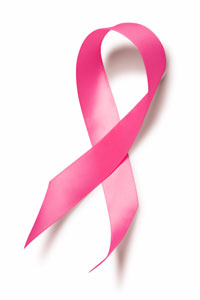Pinkwashing (breast cancer)
The practice of companies using breast cancer awareness for marketing purposes
Pinkwashing in the context of breast cancer refers to the practice where companies and organizations use the pink ribbon symbol or the color pink to promote products or services, often claiming to support breast cancer awareness or research, while contributing little to the cause. This term is a play on "whitewashing," and it highlights the potential exploitation of breast cancer awareness for profit.
Origins and Meaning[edit | edit source]
The term "pinkwashing" emerged as a critique of the commercialization of breast cancer awareness. The pink ribbon became a widely recognized symbol of breast cancer awareness in the early 1990s. However, as the symbol gained popularity, many companies began to use it as a marketing tool, sometimes without making significant contributions to breast cancer research or support.
Criticism of Pinkwashing[edit | edit source]
Critics argue that pinkwashing can mislead consumers into believing that their purchases are making a meaningful impact on breast cancer research or patient support. In some cases, products bearing the pink ribbon may contain ingredients linked to cancer, leading to accusations of hypocrisy. Additionally, the focus on purchasing products can overshadow more effective forms of support, such as direct donations to research organizations or advocacy for policy changes.
Impact on Breast Cancer Awareness[edit | edit source]
While pinkwashing has increased visibility for breast cancer awareness, it has also led to concerns about the "commodification" of the disease. The emphasis on consumerism can detract from the complex realities of breast cancer, including the need for more research funding, better access to healthcare, and support for patients and survivors.
Ethical Considerations[edit | edit source]
Organizations and companies engaging in breast cancer awareness campaigns are encouraged to be transparent about how much of the proceeds from pink-themed products are actually donated to breast cancer causes. Ethical marketing practices involve clear communication about the impact of consumer purchases and ensuring that a significant portion of profits support meaningful initiatives.
Alternatives to Pinkwashing[edit | edit source]
To avoid pinkwashing, consumers can:
- Research organizations to ensure they are reputable and transparent about their funding.
- Donate directly to breast cancer research and support groups.
- Participate in advocacy and awareness campaigns that focus on systemic change rather than consumerism.
Related pages[edit | edit source]
Search WikiMD
Ad.Tired of being Overweight? Try W8MD's physician weight loss program.
Semaglutide (Ozempic / Wegovy and Tirzepatide (Mounjaro / Zepbound) available.
Advertise on WikiMD
|
WikiMD's Wellness Encyclopedia |
| Let Food Be Thy Medicine Medicine Thy Food - Hippocrates |
Translate this page: - East Asian
中文,
日本,
한국어,
South Asian
हिन्दी,
தமிழ்,
తెలుగు,
Urdu,
ಕನ್ನಡ,
Southeast Asian
Indonesian,
Vietnamese,
Thai,
မြန်မာဘာသာ,
বাংলা
European
español,
Deutsch,
français,
Greek,
português do Brasil,
polski,
română,
русский,
Nederlands,
norsk,
svenska,
suomi,
Italian
Middle Eastern & African
عربى,
Turkish,
Persian,
Hebrew,
Afrikaans,
isiZulu,
Kiswahili,
Other
Bulgarian,
Hungarian,
Czech,
Swedish,
മലയാളം,
मराठी,
ਪੰਜਾਬੀ,
ગુજરાતી,
Portuguese,
Ukrainian
Medical Disclaimer: WikiMD is not a substitute for professional medical advice. The information on WikiMD is provided as an information resource only, may be incorrect, outdated or misleading, and is not to be used or relied on for any diagnostic or treatment purposes. Please consult your health care provider before making any healthcare decisions or for guidance about a specific medical condition. WikiMD expressly disclaims responsibility, and shall have no liability, for any damages, loss, injury, or liability whatsoever suffered as a result of your reliance on the information contained in this site. By visiting this site you agree to the foregoing terms and conditions, which may from time to time be changed or supplemented by WikiMD. If you do not agree to the foregoing terms and conditions, you should not enter or use this site. See full disclaimer.
Credits:Most images are courtesy of Wikimedia commons, and templates, categories Wikipedia, licensed under CC BY SA or similar.
Contributors: Prab R. Tumpati, MD

